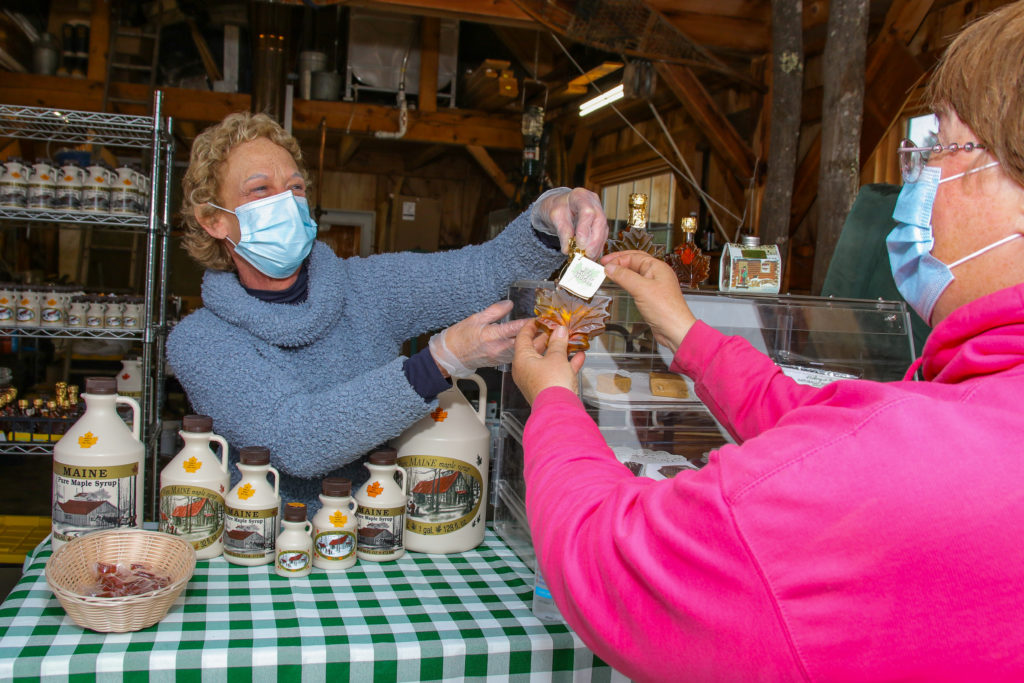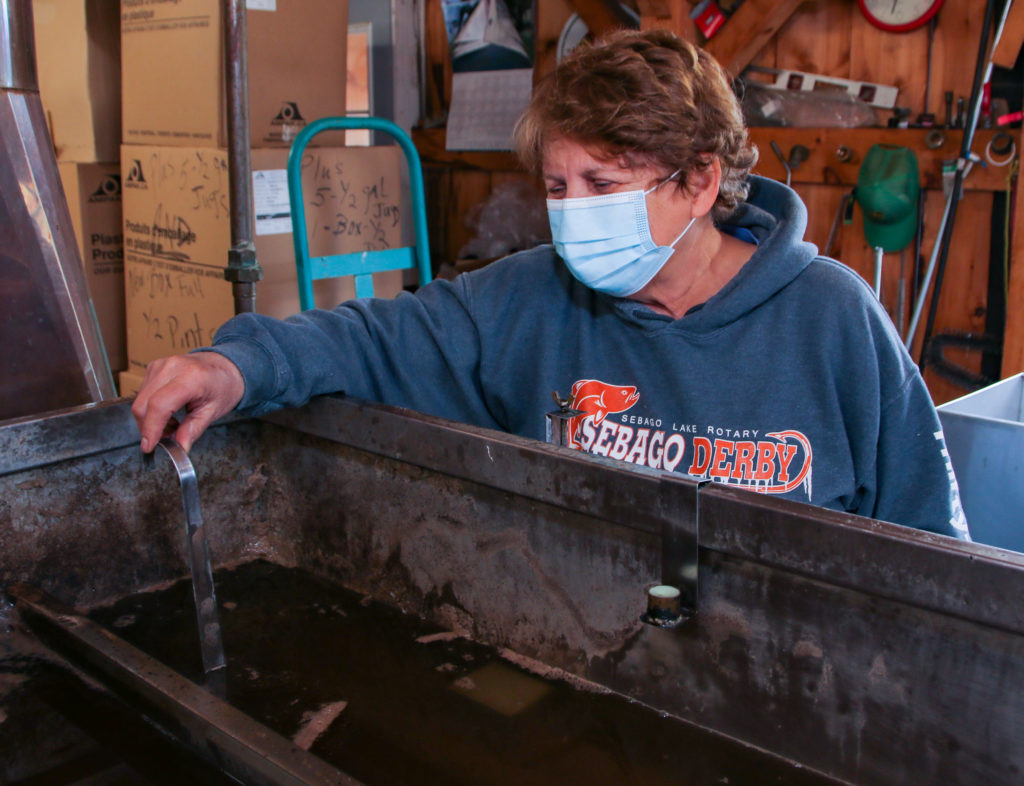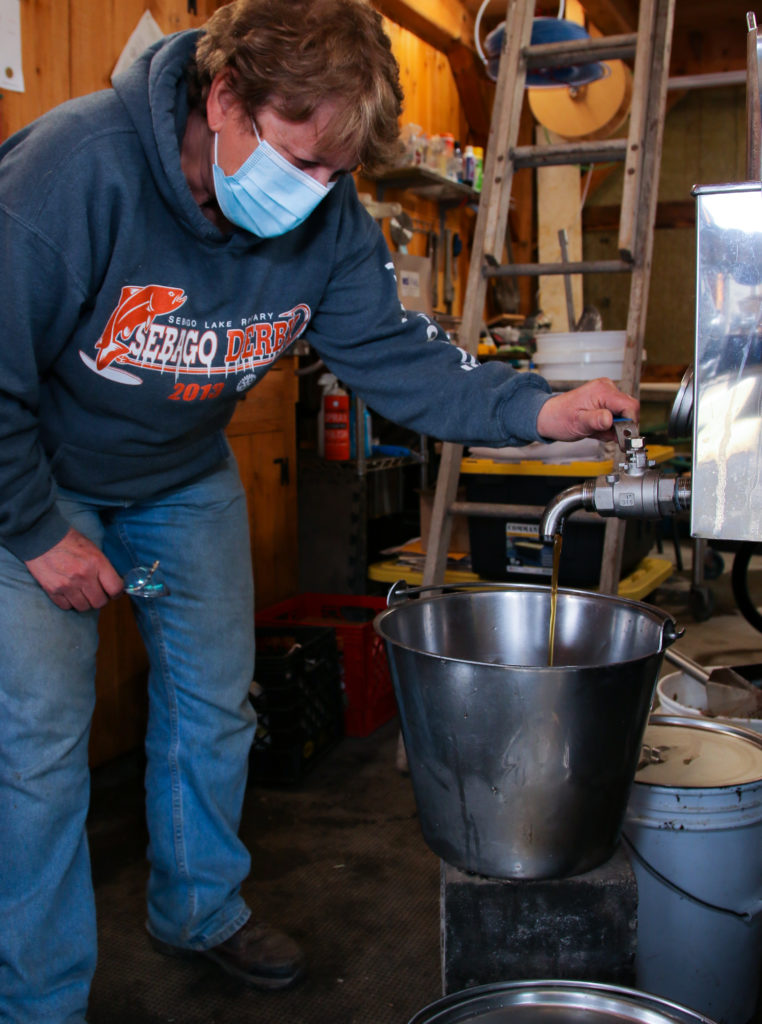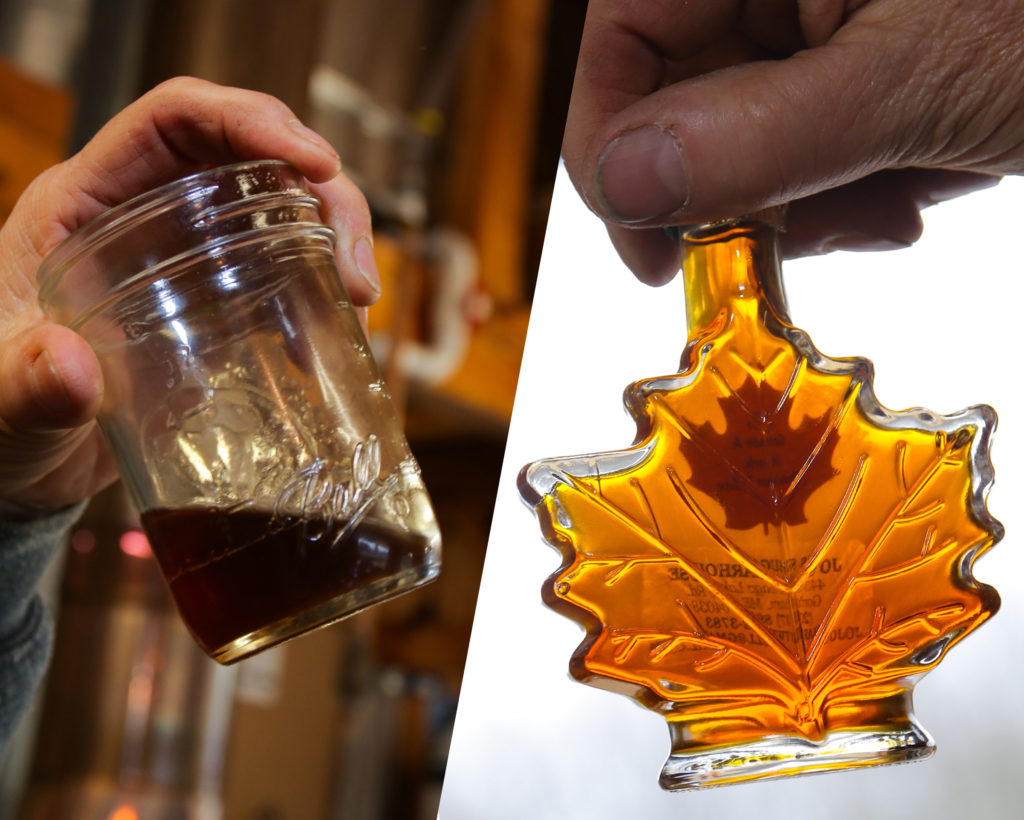Visitors return for Maine Maple Sunday
By Nathan Tsukroff
GORHAM – Jo’s Sugarhouse on Sebago Lake Road in Gorham had visitors again for Maine Maple Sunday, but not the crowds from past years.
Owner Jo Hartwell said they generally see “a couple of thousand” guests for the traditional weekend, and serve around 900 breakfasts on Sunday.
Not this year, though.
After being cancelled by the State of Maine last year just a week before the event, as the COVID-19 pandemic began, Maine Maple Sunday was allowed to take place this year with limits on the number of guests. The event is always the fourth weekend in March.

Hartwell opened the sugarhouse in 2003 on the farm she owns with her husband, Karl, on the north side of Gorham near the Sebago town line.
She expects to produce only about 25 gallons of finished syrup this year, down from the 40 or so gallons her small facility has made in the past.
A newly-installed reverse-osmosis machine failed, and the sugarhouse lost about two weeks of processing while waiting for a replacement. Plus, warmer weather this year meant that the maple trees didn’t run as much sap as in past years.
Sap usually starts to flow in mid-February in southern Maine, when daytime temperatures rise above freezing and nighttime temperatures fall below freezing. When the temperature stays above freezing for days at a time, the sap stops running.
Sugarhouses in this part of Maine have had about 7 sap runs this year, while past years have generally seen 10 sap runs. The best years have seen as many as 15 sap runs.

A little more than 40 gallons of sap has to be boiled down to make a gallon of the finished syrup. So it will take about 1,100 gallons of sap to make the expected 25 gallons of syrup at Jo’s Sugarhouse this season.
The boiling process removes the water in the sap and brings the sugar content to 66%, at which point the syrup is boiling at 219 degrees Fahrenheit, or about 7 degrees above the boiling temperature of water. This process takes hours and hours, and has to be watched constantly.
Using reverse osmosis, most of the water is removed from the sap, so the boiling to convert the sap to finished syrup is much faster. For a collection of several hundred gallons, boiling might take all day, while reverse osmosis removes enough water for the boiling to be completed in a couple of hours.
For collecting the sap, taps are installed into trees that are at least 10-inches in diameter. Two taps can be placed in a 14-inch-diameter tree, and three in an 18-inch-diameter tree. Some trees have a collection container on each tap, or plastic tubing can be run from tree to tree, down to a single collection container.
The finished syrup is filtered before being bottled or used for candies or other foods, to remove specks of dirt and other particles that are found in tree sap. The collection containers on the trees are covered to keep out rainwater and branches.

Hartwell runs the sugarhouse with the help of several friends who collect the sap and man the counter at her small store at the front of the building, which is about the size of a large, two-car garage.
Besides the bottled syrup, Hartwell and her friends make cream filled whoopie pies, maple and chocolate fudge, maple needhams, maple cotton candy, smoke maple cheese, and maple candies such as lollipops.
Jo’s Sugarhouse has been open weekdays during March by appointment, and she was planning to make home deliveries this week, following Maine Maple Sunday.

In past years, the sugarhouse has served breakfast in the morning, then switched to a lunch meal featuring the grass-fed beef burgers from cattle raised by her son, Ben Hartwell, who is on the town council in Gorham. He keeps the bulls on the farm next to the sugarhouse, while the other cattle are currently out on a 200-acre area across town.
Hartwell Farm sells eggs, and this past year Jo Hartwell raised turkeys and meat chickens, often called “broilers”, for the first time. “I sold the turkeys at Thanksgiving time, and I had no problem selling them,” she said.




